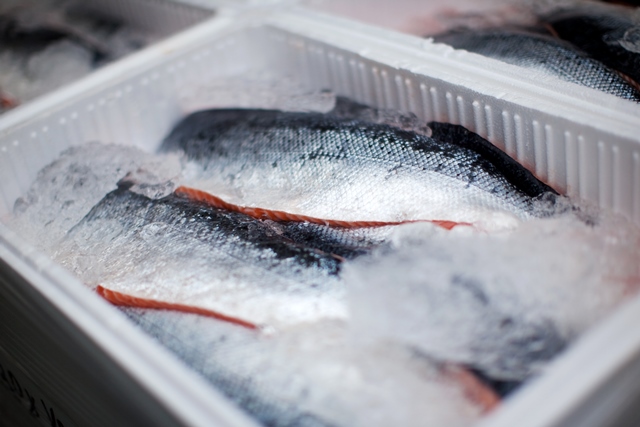New research by McKinsey & Company reveals a looming seafood shortage amidst a 14 percent surge in global demand by 2030 that could drive major uptake of alternatives to popular seafoods.
The report, ‘The next wave: Alternative-seafood solutions,’ notes that 85 percent of fisheries are already at or beyond their limits and restrictions on fish farming, meaning that traditional seafood supplies cannot keep up with demand.
McKinsey’s analysis pinpoints five popular species – shrimp, tilapia, tunas, salmonids and lobster – as prime candidates for substitution by alternative seafoods. For example, it notes that tuna is the third biggest seafood market and is 99% wild-caught, due to being the most difficult to farm, making it highly attractive for alternative production.
Alternative seafoods also have a lower carbon footprint as they can be produced locally, with the report showing that tuna alone has a carbon footprint at the retail level of 0.8 to 0.9 kilograms of CO₂ per kilogram.
McKinsey identifies cultivated, fermentation-based, and plant-based products as three primary production options that offer promising alternatives to seafoods due to their similarities, high historic investment and market readiness.
The report shows plant-based alternative seafoods face the least regulations and lowest barriers to market entry – having already achieved a price of just $12-20 per pound in the U.S. It adds that cultivated products grown from fish cells have already attracted $100 million in investment in the U.S and are potentially closest to fish in taste, texture, and nutrition.
Anders Milde Gjendemsjø, associate partner at McKinsey, said: “Alternative proteins have previously focused on chicken, pork, and beef yet seafood has a competitive advantage over meat as it often sells at a higher price.
“Premium or super premium cuts of bluefin tuna range from $40 to $200 a pound which is a much easier price for alternatives to hit than $4.99 a pound for ground beef. Alternative seafoods are also greener to produce, can include the benefits of omega-3s without the high mercury levels in fish and aren’t restricted by fishing quotas or farming licenses.”
Tom Brennan, partner at McKinsey, said: “Our research indicates how alternative seafoods could help sustainably scale the industry and reduce pressure on fisheries while expanding access to proteins.
“Yet they face significant challenges in lowering production costs to levels comparable with fish and mirroring the wide variety of taste and texture. Innovating to improve taste, nutrition and cost is fundamental to achieving wider distribution and reducing pressure on sea and freshwater ecosystems.”


